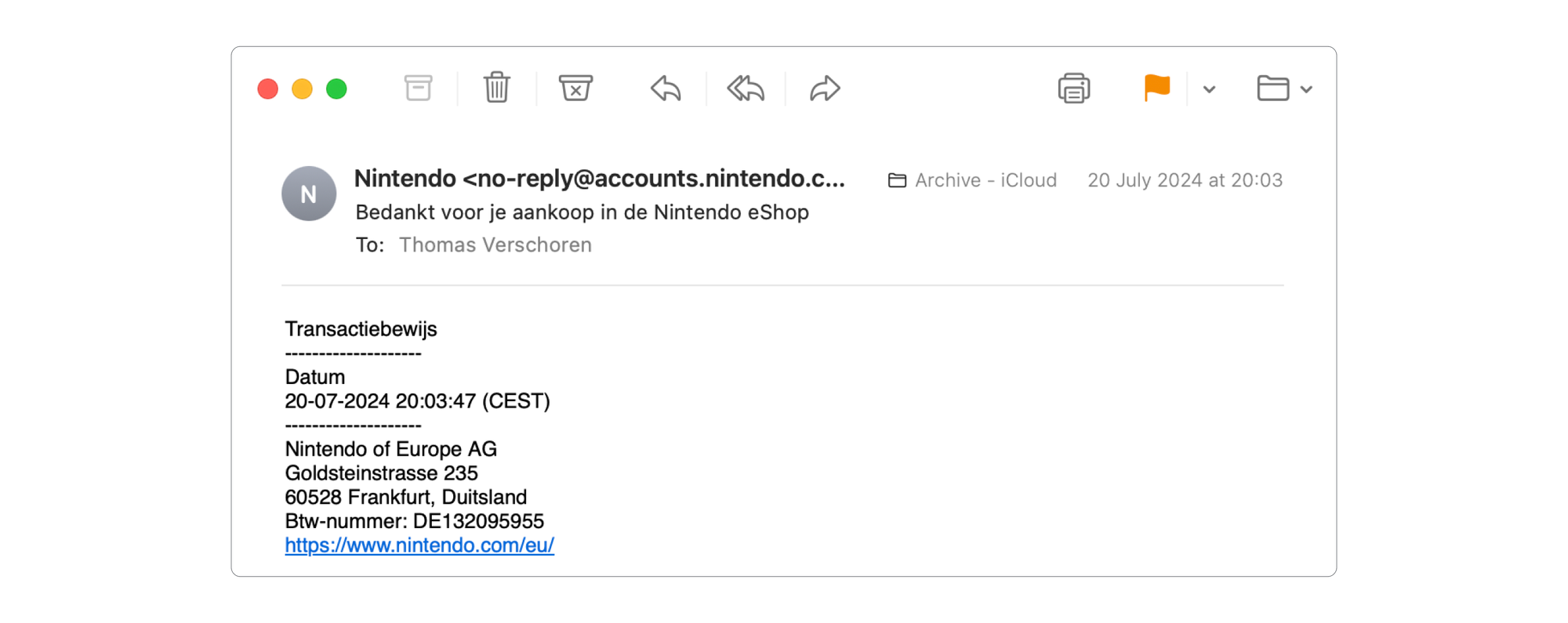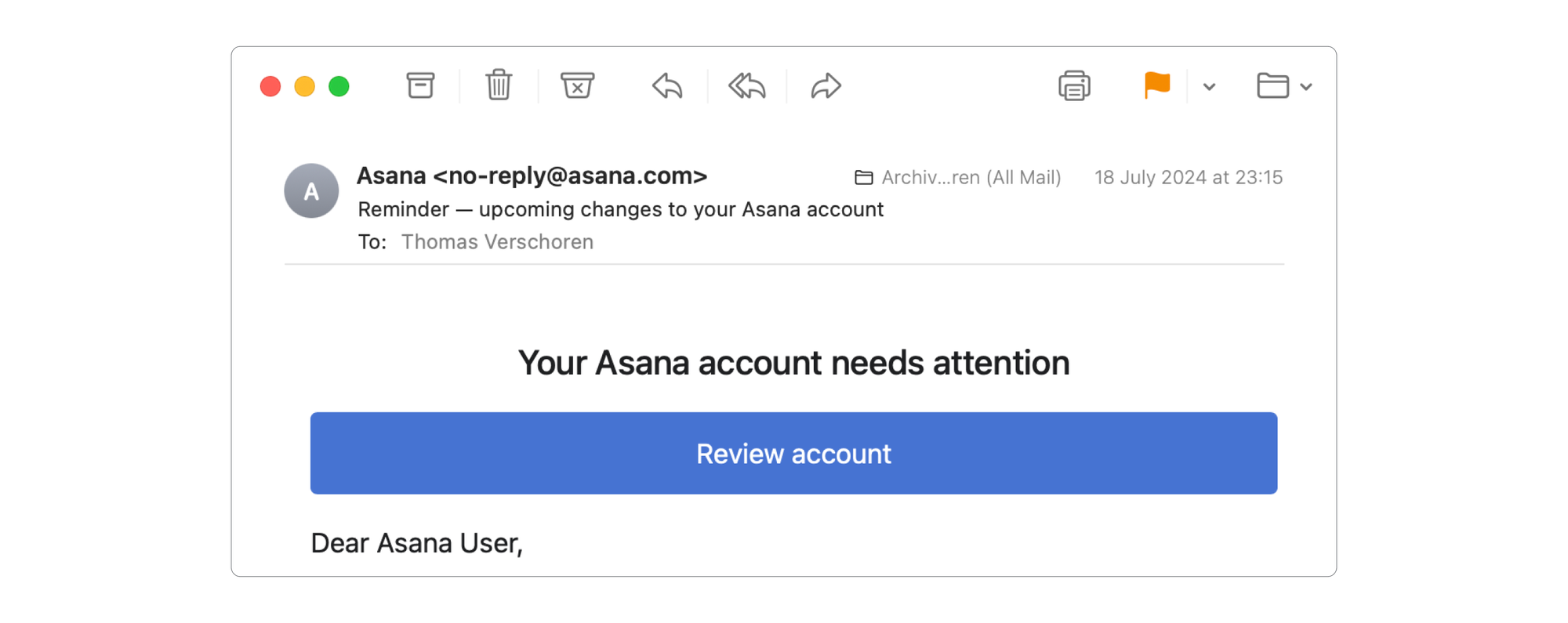
No more no-reply
Have the guts to remove your no-reply. It blocks your customers and creates a terrible experience. Replace it with self service, automations and routing.
A few weeks ago I went to an event from Cloudflare in Amsterdam where they showcased their newest product features combined with a few presentations from their team and customers. After the event I got an email from them asking me to fill in a questionnaire about the event. That questionnaire contained an error which prevented me from completing it.
So I went back to the email, clicked the reply button to let them know something was wrong. Only to be stopped midway my first sentence since the sender of the feedback email was <[email protected]>.
When I phone you night and day
I get no reply, no reply
I keep writing those letters and send them away
To get no reply, no reply
Similarly a few years ago I had a customer whose head of CX showed us a 99% first time resolution (FTR) metric for their team. Which is an astounding number (the industry average lies around 70%). When we dove into the numbers and reporting we discovered two things: they replied to customers from a [email protected] email, and that inbox was not forwarded or read by anyone in the company. When we reached out to the IT team to check the logs for that mailbox we quickly discovered the inbox contained thousands of unread emails and the average FTR was around 45%.
A quick search through my own inbox for the last month gave me ~200 noreply emails ranging from marketing emails, order confirmations, invoices and a range of other business and online sales related emails from a myriad of companies.

And this makes me wonder..
Why would you send email to a customer from a noreply email address?
Assumption: we don't expect customers to reply to this
One motivation I often hear is: "this is a transactional email, we don't expect customers to reply to this".
In the case of an order confirmation, payment receipt, renewal alert or other transactions you often see the email coming from a noreply address. But what happens if there is a mistake in the email? Imagine the customer booked for the wrong date. Or the customer doesn't want to renew their service. Or they get an order receipt and see it has the wrong ship-to address.

A noreply email smells like arrogance to me. It separates the company from a customer and makes the customer think the company isn't interested in your feedback or comments.
Why would you want to prevent the customer from replying to the email to fix the issue? By using a noreply email you force the customer to go search for your support page, contact email or other channel and create a brand new ticket, thereby preventing your agents from having all the context they need to solve the issue.

The original email contains all the information and context required to solve the ticket. So instead of sending out these emails from noreply@, send it from an email address managed by the team that can resolve complains and questions about the email. If customers have questions they'll reach out to you anyhow.
Assumption: We only sent out the email. It's not our job to handle the replies.
Or on other words: the other department send out these emails, why should be get the replies and customer feedback for those emails?
For me, any company who emails with a noreply email is a company whose departments are silo'd.
If marketing sends out a "Summer Promotion" email from their [email protected] email, instead of emailing with a normal reply-to address, that means that any feedback from customers – I just bought X, can I use the promo, can I apply the promo to Y,...– will not have a team to handle those questions.

In parallel, if you allow replies to those emails, you get measurable feedback. You can collect customer replies to these emails, you can see what went wrong, or even amend your FAQ to make things clear for the next customer.

Assumption: if we put up a barrier the problem will go away.
Customers who have an issue with their order will reach out to support to get it fixed. Sending out the confirmation email from noreply will not make that problem go away. It will just put up a barrier between the customer who has an issue, and the team (your team) that can resolve that issue.
There's a variation of this noreply flow: the dreadful "this mailbox is not monitored email".

The above is even worse. Sometimes you get an email from <[email protected]> but when you reply you get an automated response to let you know this email address is not used. You know someone took the time to setup that deflection on purpose. The same effort could be done to forward the email to the team that handles my inquiry, but someone in the company decided that no, deflection is the best approach here.
A better way
I think the best approach is the one where every email you send to your customers allows your customers to reply to.
This does not mean every email should land in the inbox of your team. We can leverage features like auto reply, intelligent triage or even links to related articles right in the original email to make sure customers can try to resolve their issue themselves first. Any reply that can't get resolved should land in the inbox of the right team.
Take a look at this example from, coincidentally, my favorite Belgian beer.
- The reply-to is an email that goes to customer care
- The email has all the references like order number and shipping number right in the email body
- There's a link to my account to get status update or make changes.

So what happens if I have an issue? I'd go to my account first and try to modify the order. If that doesn't work I can just reply to the email and get support from an agent. You can't get it easier than that!
As a company, you should have the guts to disable your noreply emails and make sure every email arrives somewhere. Self Service and ticket deflection are the best way to handle customer feedback. But trying to prevent it by using a noreply address is just bad practice.





